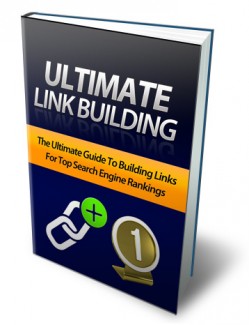 License Type: Private Label Rights
License Type: Private Label Rights  File Size: 8,684 KB
File Size: 8,684 KB File Type: ZIP
File Type: ZIP
 SKU: 51908
SKU: 51908  Shipping: Online Download
Shipping: Online Download
Ebook Sample Content Preview:
Chapter 5: HowTo Avoid Being Slapped By Google Updates
Ever heard of the phrase “Google slap”? The phrase has been misused a few times and quite a number of people assume it refers to any perceived punishment by Google such as de-indexing or a drop in rankings but it has nothing to do with that.
The slap refers to a situation where Google reviews and concludes that your ad and associated landing pages are of such poor quality that the search engine endeavors to get your ad removed from the paid listings and the way to do this is to lower its position and raise the current bid price so that the campaign ceases to make economic sense.
A Google slap is not pleasant at all, particularly when it hits your PPC. There are quite a number of horror stories relating to websites that got smacked by Google and never recovered, many of them choosing to abandon their domains and start all over.
In the interest of self-preservation, websites should attempt to avoid engaging in poor ad campaign that triggers the sabotage. Here are some of the ways smart markers stay safe:
1. Multiple page website
Back in the day people linked their ad to a single-page site but that doesn’t work at all. It won’t matter to Google how important your single page is, if it doesn’t operate as a component of a bigger, more established website, then the search engine won’t see it as being of any use to a visitor. So basically, your website should have at least 10 pages of quality content, and an additional Privacy Policy, and of course a Contact US/About Us page.
2. Avoid excessive advertising
A lot of people get tempted into trying out alternative avenues for boosting revenue aside from the paid traffic. While AdSense might make sense as a separate revenue stream, it raises the chance of your page being viewed as irrelevant.
3. Link to pages on your site
When a visitor gets to your landing page you don’t want them distracted. You want them completely focused on what you’re selling, and so you might have to remove the menu sidebar you have posted on your landing pages. It is important though, that you ensure to keep links to other parts of your website posted on the page; the bottom of the page is a good place to place them.
4. Bouncing visitors to affiliate links
Google does not view it as reasonable user experience when you send your visitors directly from your landing page to an affiliate website. The way around this is to convert the affiliate links into redirects, whereby the visitor will go through a page on your site, then finally direct them to your Clickbank hoplink.
5. Skimming on landing page content
As a marketer you will be tempted to send each visitor to your affiliate link as quickly as possible but try not to. Instead, consider that when you keep your landing page unique with relevant content to the visitor, it keeps your overall PPC costs down.
Most engaging pages contain a good amount of text, images and embedded video which all keeps the visitor glued to the page. Google doesn’t “see” some of these elements so it’s always a good idea to mention the keyword in the image name.
6. Optimize your landing page
You can do this by making sure that the content you create for the landing page is uniquely geared on the keyword. This is one of the main reasons it’s a good idea to keep two separate landing pages for two separate ad groups. The point here is to make sure the visitor gets the feeling that they found exactly what they’re looking for when they get to the page, and that’s harder to do when you combine ads.
It won’t be the end of the world if you get slapped but it will be the end of your campaign so if you don’t want to wait for months as Google reviews your case, and you don’t want to move to MSN or Yahoo, then your best move would be to avoid getting in trouble.
Marketers combine a bunch of techniques to ensure their ad campaigns don’t raise any eyebrows. Here are a couple more ways smart people protect their ads:
Become an authority
You may have heard this before that the more value a website provides the more traffic it gets. The more people read your website and like the content, then link it to their own social web copy via social media, the more Google takes you seriously. It grows over time and the more authoritative you get the higher you get ranked, and you never have to worry about your ads being whitewashed.
Obviously this involves a lot of work and it makes perfect sense that Google would reward websites that undergo this kind of work in an effort to become an authority figure. If you don’t update your blog or website regularly, chances are you’ll lose your connections and people will start to forget about your brand.
This will happen whether or not you post green information. If you go for six months without updating your site or blog, then most search engines will overlook you and rankings will drop as a result. Think of it this way, who would you rather affiliate yourself with- the person who works hard every day, learning new things and sharing them, or the guy who sits quietly at the corner, watching everybody else work and not doing anything?
Promote your content via social media
It doesn’t matter how much of an authority you are on a given subject. If you don’t let people know what you’re up to, you’ll be missing out. Let’s say you publish a new blog post, how do you let people know there’s new material? The best way to do this is through your social platforms. That’s why they exist, so you can establish a more personalized and direct form of communication with your audience.
Promotion is an essential element in online business but keep in mind there’s a right way and a wrong way of doing things. Social media is available to any business for the purpose of creating relationships that make it easier to learn tons about your audience and use it to grow the business.
- File Size:8,684 KB
- License: Private Label Rights
- Category:Ebooks
- Tags:2014 Ebooks Private Label Rights








